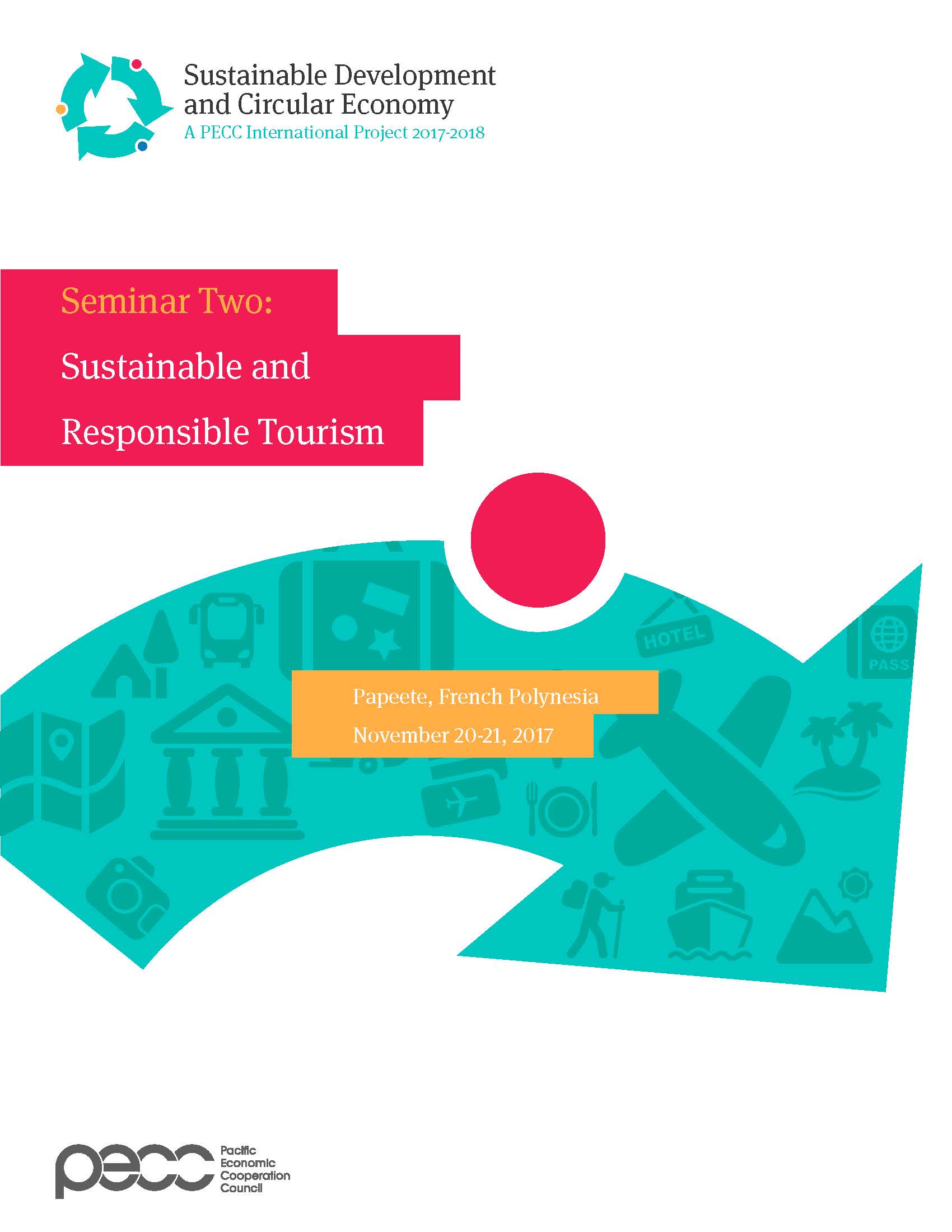 The United Nations has named 2017 the “International Year of Sustainable Tourism for Development.” More than one billion international tourists are traveling around the world each year and this number is expected to increase significantly by 2020, driven largely by China’s growing middle class as well as the cruise industry. The tourism sector for many economies is growing at exponential rates and represents substantial economic value for a many of Asia-Pacific economies.
The United Nations has named 2017 the “International Year of Sustainable Tourism for Development.” More than one billion international tourists are traveling around the world each year and this number is expected to increase significantly by 2020, driven largely by China’s growing middle class as well as the cruise industry. The tourism sector for many economies is growing at exponential rates and represents substantial economic value for a many of Asia-Pacific economies.
The tourism industry has become a major source of revenue for many of the region’s economies but also has become an increasing concern regarding environmental protection. Given the growing number of visitors and the infrastructure expansion necessary to support these tourists, many of the attractive and valuable environmental/ cultural features are at risk. Over time, without proper planning and education, these tangible and intangible assets may become degraded, losing their original form, causing the tourism industry to suffer and eventually become unsustainable. Short-term gains may be realized at the expense of long-term revenue opportunities.
Sustainable tourism can help boost employment and economic growth for local communities and indigenous peoples by engaging them in various tourism activities, and in some cases, alleviate poverty. Moreover, sustainable tourism that integrates the concept of the circular economy promotes the conservation of natural resources and reduction of tourism-related carbon footprint. This can also be expanded and integrated into other sustainability programs associated with micro-industries, micro-financing, and sustainability practices for other industries that are interdependent with tourism. Sustainable tourism also promotes education and first-hand understanding for and preservation of local cultural heritage and diversity.
The seminar on sustainable and responsible tourism addressed how a vital economic activity, especially for developing economies, can grow sustainably without contributing to the environmental and cultural degradation. Participants discussed integration of circular economic factors into tourism which can contribute to increasing the economic, social, and environmental benefits.
The second seminar of the three-part series was hosted by the local government of French Polynesia.
SEMINAR 2: SUSTAINABLE AND RESPONSIBLE TOURISM
PAPEETE, FRENCH POLYNESIA | NOVEMBER 20-21, 2017
PROGRAM AGENDA
OPENING REMARKS: H.E. Edouard Fritch, President of French Polynesia
KEYNOTE: Pascal Lamy, Chair, FPTPEC/ former Director General of the World Trade Organization (WTO)
SESSION 1: Tourism, Economic Development, and International Cooperation
• How is the concept of circular economy applied to tourism?
• Regional tourism outlook and forecasts for Asia-Pacific economies
• Tourism as a source of inclusive development
• Supply chain management in tourism industry: transport, accommodation, hospitality, tour guide, recreational activities, site conservation, etc.
SESSION 2: Tourism and Environmental Protection
• Competing land use rights impacting sustainable and responsible tourism
• Development of eco-construction and eco-buildings for tourism
• Climate change and resiliency strategies for sustainable tourism
• Management of clean transportation in coastal and recreational sites
SESSION 3: Measuring Sustainability
• What are some of the ways in which sustainability is measured in tourism and hospitality sectors?
• Standard and certifications in tourism industry
• Monitoring and evaluation over time
• Indexing methods
SESSION 4: Island Economies
• How could island economies limit or mitigate the negative effects of tourism on environmental and cultural features?
• How do tourism and hospitality industries benefit these island economies, e.g., attract foreign direct investments, necessitate infrastructure development?
• How do we ensure that tourism activities are compatible with the conservation of tangible and intangible cultural and ecological heritage sites?
SESSION 5: Next-Generation Tourism
• Youth and tourism
• New trends
• Luxury tourism and luxury hospitality
• Alternative forms of tourism: ecotourism, education tourism, medical tourism, volun-tourism
CLOSING REMARKS: Mdm. Nicole Bouteau, Minister of Tourism, French Polynesia
